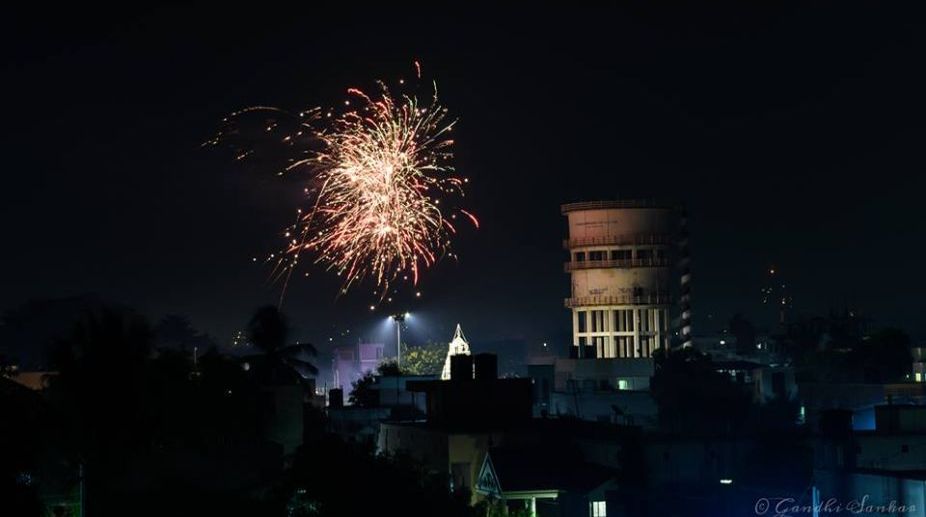The Supreme Court today lifted “for the time being” its order of suspending the permanent licences for sale and retail of fire crackers within the National Capital Region (NCR) by modifying its order of November last year.
The apex court, however, said its order lifting the suspension of permanent licences might require a review after Diwali, depending on the ambient air quality after the festival.
Advertisement
A bench comprising Justices M B Lokur and Deepak Gupta asked the Centre and the concerned authorities to consider encouraging the display of fireworks through community participation rather than the individual bursting of crackers.
The top court appointed a committee, to be headed by the chairperson of the Central Pollution Control Board (CPCB), to conduct a research on the impact of bursting fire crackers during the festive season of Dussehra and Diwali on the health of the people.
The court also directed the Delhi Police to reduce the number of temporary licences by 50 per cent of those granted last year and cap it at 500.
“The suspension of permanent licences as directed by the order dated 11th November 2016 is lifted for the time being. This might require a review after Diwali depending on the ambient air quality post-Diwali. However, it is made explicit that the sale of fireworks by the permanent licensees must conform to the directions given above and must be fully in compliance with the Explosives Rules,” the bench said.
“Keeping in mind the adverse effects of air pollution, the human right to breathe clean air and the human right to health, the Central Government and other authorities should consider encouraging the display of fireworks through community participation rather than the individual bursting of fireworks,” it said.
The top court said the committee appointed by it would furnish a report of its research on or before December 31.
“The Delhi Police is directed to reduce the grant of temporary licences by about 50 per cent of the number of licences granted in 2016. The number of temporary licences should be capped at 500.
“Similarly, the States in the NCR are restrained from granting more than 50 per cent of the number of temporary licences granted in 2016. The area of distribution of the temporary licences is entirely for the authorities to decide,” the bench said.
The court said that since there were “enough fireworks available for sale in Delhi and the NCR, the transport of fireworks into Delhi and the NCR from outside the region is prohibited and the concerned law enforcement authorities will ensure that there is no further entry of fireworks into Delhi and the NCR till further orders.
“In our opinion, even 50,00,000 kg of fireworks is far more than enough for Dussehra and Diwali in 2017”.
The bench directed the police authorities and district magistrates to ensure that fire crackers are not burst in “silence zones”, an area of at least 100 metres from hospitals, health care centres, educational institutions, courts and religious places or any other area that has been declared a ‘silence zone’ by the authorities.
The court’s order came on the plea of fire cracker manufacturers who were seeking a relaxation of its order of November 11 last year suspending all licences which “permit sale of fire works, wholesale and retail within the territory of NCR”.











